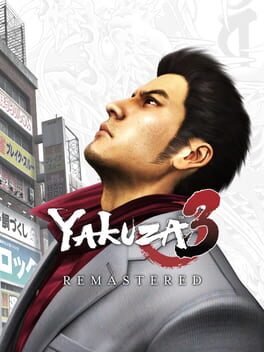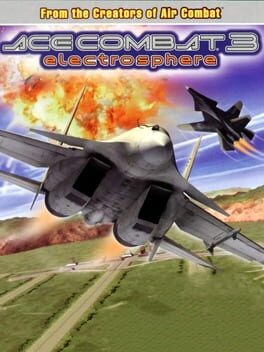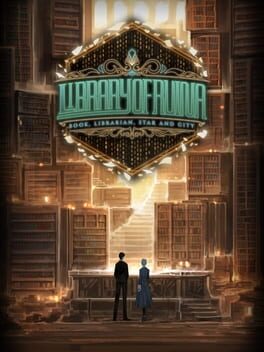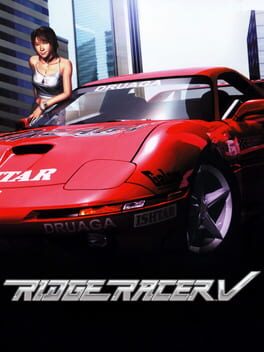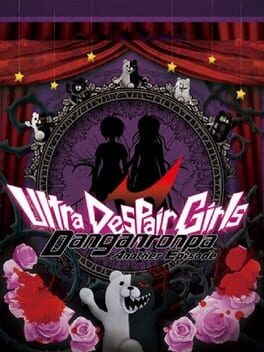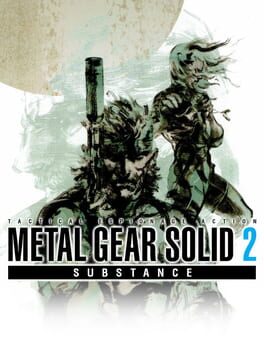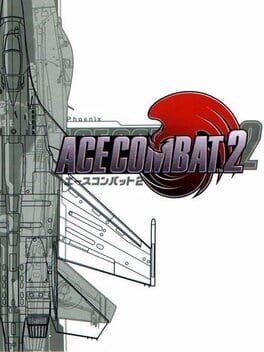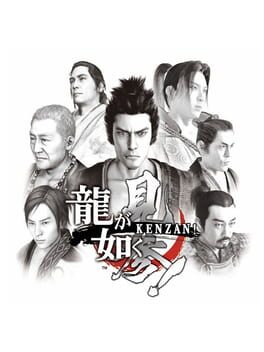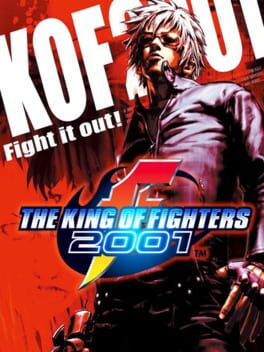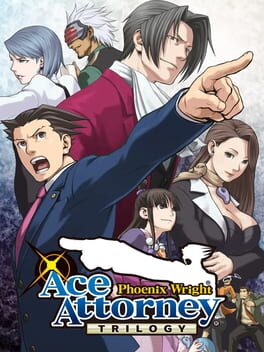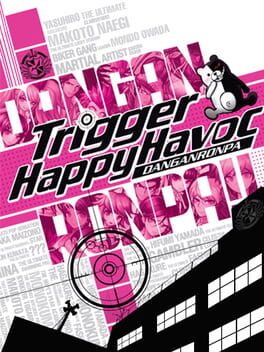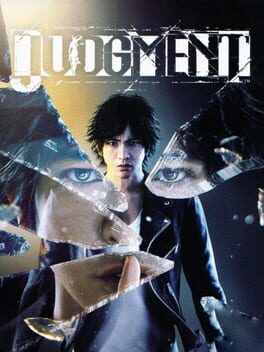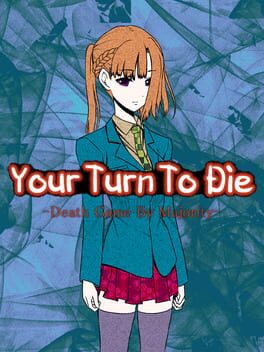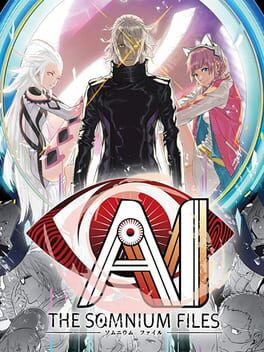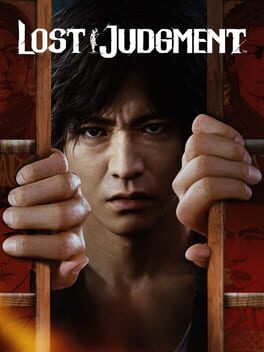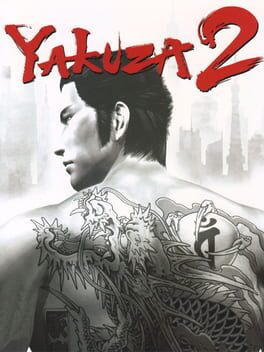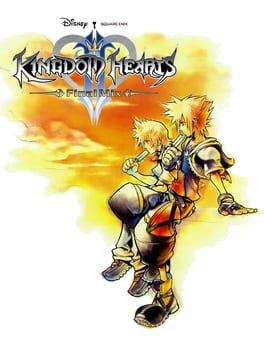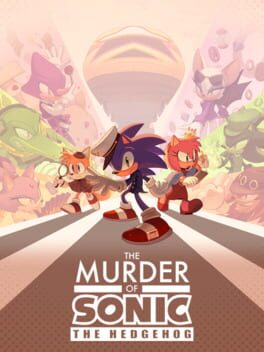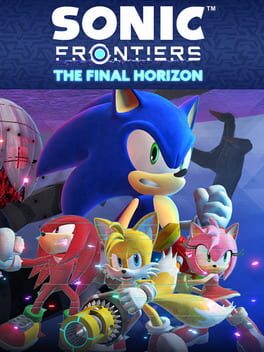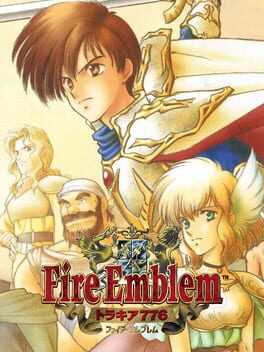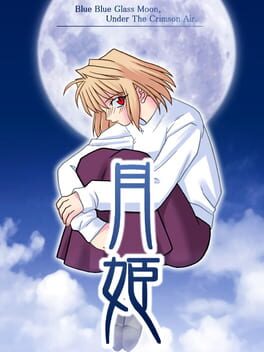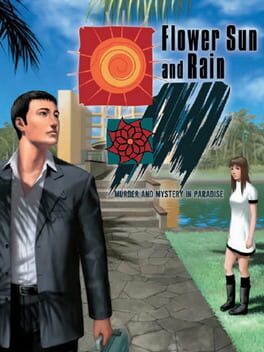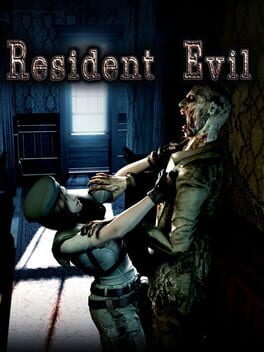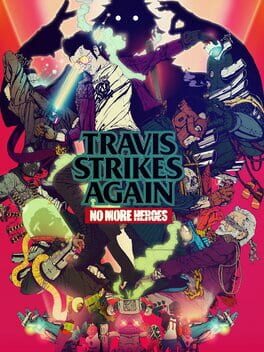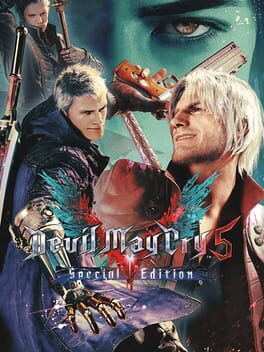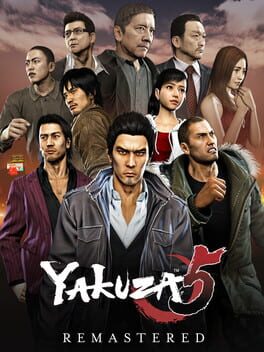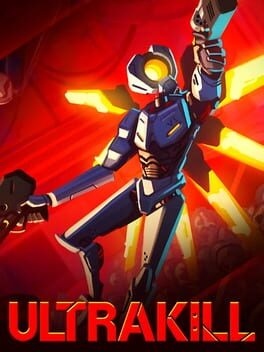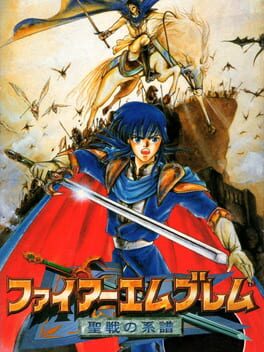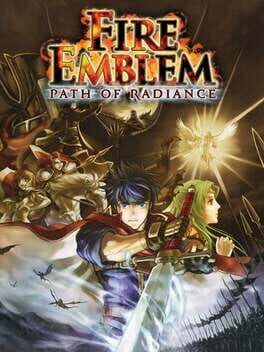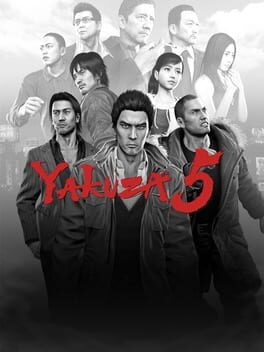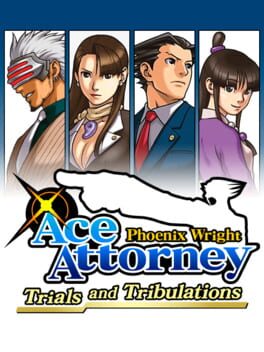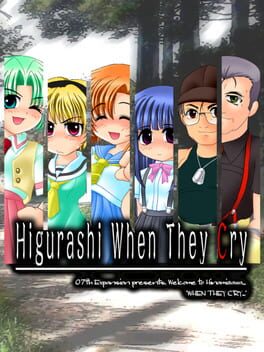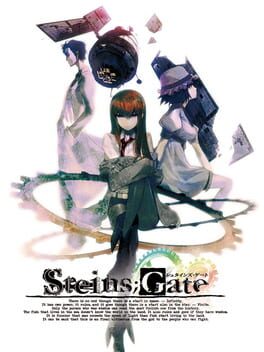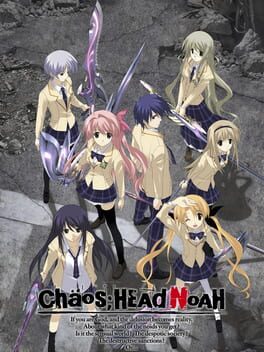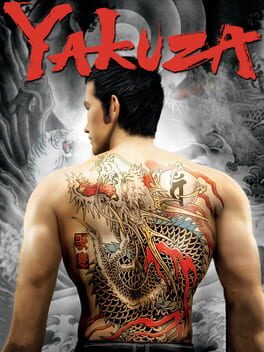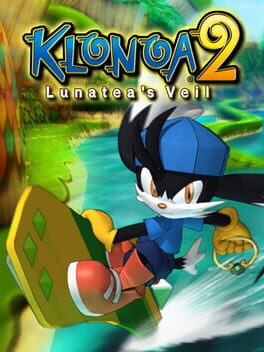Josh_The_Fourth
2130 reviews liked by Josh_The_Fourth
Yakuza 3 Remastered
2018
This review contains spoilers
yakuza 3 is a very good game. i really enjoyed the beginning chapters being slow paced versus the explosive nature of the previous entries, and all of the orphanage scenes were really nice, showing a more vulnerable while strong version of kiryu.
regarding the story itself, i really dont like that it basically just dumped everything in one chapter and then the actual plot started to unravel after like 15 hours of already playing. while i do think that this was a result of all of the super intimate orphanage scenes at the beginning taking up a large chunk of screentime, i do feel like starting the story up a bit earlier wouldve helped a lot. i think the plot itself is ok, but if it dropped slight hints from like idk chapter 5 or something onwards (more than two people getting shot and some random person that looks like kazama), it wouldve helped the plot slowly unravel rather than feeling kinda contrived by the time it comes to a head.
mine himself is a really good villain -- hes a foil to kiryu in the way that the people and ideals you surround yourself with have a massive impact on your outlook on the way you live your life. i wish he had more development though because by the time you face off against him (fucking amazing boss fight btw) hes only appeared in like 7 scenes max, which i dont think is adequate enough; in fact, i think its a direct result of the majority of the plot just kinda being shoehorned in at the end. i do think that the base idea of his character is enough for me to love him.
wrt gameplay: i really enjoyed it. while it was less fluid than y2, which i initially held against y3, it was just a different style and pace of combat. you have to be a lot more tactical and calculating in each and every fight, and while the boss ai or whatever had a blocking problem, theres a lot of ways to get around it that make boss fights super fun. fights like lau ka long, joji, and mine were really fun, make you think, and actually force you to use your resources to not get completely destroyed.
the soundtrack was probably my favorite so far out of the 4 ive played. i dont really have much to say but one song that stood out was the mine boss fight song.
overall, yakuza 3 is a good game. while i have a lot of gripes with it, they dont really take away from the objective quality of the game and are instead just personal issues that i have. play this game though it sees kiryu at his best, it sees some of the most intimate, heart-touching scenes in the series, and it features a duality that may not be as good as yakuza 2, but is special in its own way.
regarding the story itself, i really dont like that it basically just dumped everything in one chapter and then the actual plot started to unravel after like 15 hours of already playing. while i do think that this was a result of all of the super intimate orphanage scenes at the beginning taking up a large chunk of screentime, i do feel like starting the story up a bit earlier wouldve helped a lot. i think the plot itself is ok, but if it dropped slight hints from like idk chapter 5 or something onwards (more than two people getting shot and some random person that looks like kazama), it wouldve helped the plot slowly unravel rather than feeling kinda contrived by the time it comes to a head.
mine himself is a really good villain -- hes a foil to kiryu in the way that the people and ideals you surround yourself with have a massive impact on your outlook on the way you live your life. i wish he had more development though because by the time you face off against him (fucking amazing boss fight btw) hes only appeared in like 7 scenes max, which i dont think is adequate enough; in fact, i think its a direct result of the majority of the plot just kinda being shoehorned in at the end. i do think that the base idea of his character is enough for me to love him.
wrt gameplay: i really enjoyed it. while it was less fluid than y2, which i initially held against y3, it was just a different style and pace of combat. you have to be a lot more tactical and calculating in each and every fight, and while the boss ai or whatever had a blocking problem, theres a lot of ways to get around it that make boss fights super fun. fights like lau ka long, joji, and mine were really fun, make you think, and actually force you to use your resources to not get completely destroyed.
the soundtrack was probably my favorite so far out of the 4 ive played. i dont really have much to say but one song that stood out was the mine boss fight song.
overall, yakuza 3 is a good game. while i have a lot of gripes with it, they dont really take away from the objective quality of the game and are instead just personal issues that i have. play this game though it sees kiryu at his best, it sees some of the most intimate, heart-touching scenes in the series, and it features a duality that may not be as good as yakuza 2, but is special in its own way.
Puts you in a trance from the beginning, where you’ll be under its spell till the end. Lingering even after that, begging you to come back and take flight once again. Electrosophere may not be as mechanically sound as the previous entry in the franchise, which is why it speaks volumes that it’s able to grip you tightly regardless, where you’ll dance to its tunes and fly through its skies. It’s more than just a pretty aesthetic, it’s more than just anti-war.
AC3’s view on war itself is that of a sick game played by sick old men and it treats it as such. What are you fighting for, really? Every mission feels like you’re nothing more than a pawn for powers greater than yourself, it's all a ploy. All of it. Every one wants a piece of the pie, a taste of power, a chance to reign supreme. Your actions are not your own, your decisions are not your own. It's all an illusion, a trick, and at the end of the day what are you fighting for, really? To maintain the status quo? The same one in which people live under corporations that only exist to suck them dry even further? What was it all for? Do you the connections you hold have any meaning?
The true ending which you unlock after having done all five routes is the ultimate showcase of this, showing why wars are really fought. Nothing noble, nothing special. Just a personal vendetta. Did it even matter? It's just a game at the end of the day.
𝗘𝗡𝗧𝗘𝗥𝗜𝗡𝗚 𝗘𝗟𝗘𝗖𝗧𝗥𝗢𝗦𝗣𝗛𝗘𝗥𝗘
AC3’s view on war itself is that of a sick game played by sick old men and it treats it as such. What are you fighting for, really? Every mission feels like you’re nothing more than a pawn for powers greater than yourself, it's all a ploy. All of it. Every one wants a piece of the pie, a taste of power, a chance to reign supreme. Your actions are not your own, your decisions are not your own. It's all an illusion, a trick, and at the end of the day what are you fighting for, really? To maintain the status quo? The same one in which people live under corporations that only exist to suck them dry even further? What was it all for? Do you the connections you hold have any meaning?
The true ending which you unlock after having done all five routes is the ultimate showcase of this, showing why wars are really fought. Nothing noble, nothing special. Just a personal vendetta. Did it even matter? It's just a game at the end of the day.
𝗘𝗡𝗧𝗘𝗥𝗜𝗡𝗚 𝗘𝗟𝗘𝗖𝗧𝗥𝗢𝗦𝗣𝗛𝗘𝗥𝗘
Library of Ruina
2021
"O my sorrow, you are better than a well-beloved: because I know that on the day of my final agony, you will be there lying in my sheets, O sorrow, so that you might once again attempt to enter my heart."
i am definitely not the best reviewer but i really enjoyed this experience so i am going to attempt! i apologize if it is messy
Library of Ruina is a game that has genuinely blew me away and impacted me so damn hard with its beautifully written setting, characters, and themes. The way it presents its world and characters with "receptions" that allow you to peek into the opponent's unique lives around the city before you inevitably face them. This format really tugs on you and never fails to make you think deeply about the person at the other side of your weapon.
The characters in this game are so painstakingly human. The themes of humanity in this game really fascinate me, specifically what humans are capable of, and what it means to be human. Agh. Anyway play this game if you can dawg what the fuck
Also Roland is fucking peak he might be one of my favorite protagonists of all time now bro IDEK
i am definitely not the best reviewer but i really enjoyed this experience so i am going to attempt! i apologize if it is messy
Library of Ruina is a game that has genuinely blew me away and impacted me so damn hard with its beautifully written setting, characters, and themes. The way it presents its world and characters with "receptions" that allow you to peek into the opponent's unique lives around the city before you inevitably face them. This format really tugs on you and never fails to make you think deeply about the person at the other side of your weapon.
The characters in this game are so painstakingly human. The themes of humanity in this game really fascinate me, specifically what humans are capable of, and what it means to be human. Agh. Anyway play this game if you can dawg what the fuck
Also Roland is fucking peak he might be one of my favorite protagonists of all time now bro IDEK
Ridge Racer V
2000
Ridge Racer V: Launch Titles and The Lost Magic of Console Generations
There's nothing quite like zooming through the streets of Ridge City at night time, while "Euphoria" plays on the radio.
As of recently I've been on a bit of a Ridge Racer kick again, most notably putting my attention back on the fifth main installment in the series. The best way to describe R5 is bold. It's a game screaming with confidence and promise, amazingly optimized at 60fps and boasting insane visuals for the year 2000.
But that's just right, R5 was a launch title for the PS2, one of the highest selling consoles of all time. And yet, it fell under the radar compared to many other games on the system, even when it came out (I'm assuming that goes to Tekken Tag Tournament being the more appealing Namco offering). It's buried under the popularity of the entries in the series both before and after, being sandwiched in between Ridge Racer Type 4 and Ridge Racer 2004. It's overall a somewhat forgotten game, it didn't even sell that well and has never even been ported a single time… and yet, I find it one of the most profound launch titles of all time.
R5 represents a time when the leap in console generations was greater and mattered so much more. While its predecessor RRT4 was a game about looking towards the next millennium and the future of racing, R5 is the future, as insanely flashy UI and hard techno beats blast from the television screen. It boasts the technical prowess of this new generation of gaming in every single way it can. It's fucking AWESOME.
But the sad truth is that it doesn't feel like that anymore with the last two leaps in console generations. The jump in hardware doesn't land as much because we've reached a point in graphical fidelity that can't go much further than looking more realistic and being able to handle more of said demanding visuals better. This isn't entirely the fault of modern game developers, it's simply just the sad reality of how fast digital technology has evolved. And sure, maybe I am biased… I don't despise modern games but I certainly aren't very passionate for them aside from more stylistic ones that feel like old games. But it simply makes me sit back and wonder how the hell the next generation of systems could really do anything major to impress me, something to sell me on the next console and go “holy fuck, gaming has evolved.” It makes me a bit sad I missed seeing the insane revolution that was the fifth and sixth generation consoles.
Ridge Racer V is not the most impactful launch title, nor would it have been the most important pack-in title had it been one. But what R5 is, is a game that showed the promise and passion of the sixth generation of gaming hardware, and paved the way for the most important console generation of all time.
There's nothing quite like zooming through the streets of Ridge City at night time, while "Euphoria" plays on the radio.
As of recently I've been on a bit of a Ridge Racer kick again, most notably putting my attention back on the fifth main installment in the series. The best way to describe R5 is bold. It's a game screaming with confidence and promise, amazingly optimized at 60fps and boasting insane visuals for the year 2000.
But that's just right, R5 was a launch title for the PS2, one of the highest selling consoles of all time. And yet, it fell under the radar compared to many other games on the system, even when it came out (I'm assuming that goes to Tekken Tag Tournament being the more appealing Namco offering). It's buried under the popularity of the entries in the series both before and after, being sandwiched in between Ridge Racer Type 4 and Ridge Racer 2004. It's overall a somewhat forgotten game, it didn't even sell that well and has never even been ported a single time… and yet, I find it one of the most profound launch titles of all time.
R5 represents a time when the leap in console generations was greater and mattered so much more. While its predecessor RRT4 was a game about looking towards the next millennium and the future of racing, R5 is the future, as insanely flashy UI and hard techno beats blast from the television screen. It boasts the technical prowess of this new generation of gaming in every single way it can. It's fucking AWESOME.
But the sad truth is that it doesn't feel like that anymore with the last two leaps in console generations. The jump in hardware doesn't land as much because we've reached a point in graphical fidelity that can't go much further than looking more realistic and being able to handle more of said demanding visuals better. This isn't entirely the fault of modern game developers, it's simply just the sad reality of how fast digital technology has evolved. And sure, maybe I am biased… I don't despise modern games but I certainly aren't very passionate for them aside from more stylistic ones that feel like old games. But it simply makes me sit back and wonder how the hell the next generation of systems could really do anything major to impress me, something to sell me on the next console and go “holy fuck, gaming has evolved.” It makes me a bit sad I missed seeing the insane revolution that was the fifth and sixth generation consoles.
Ridge Racer V is not the most impactful launch title, nor would it have been the most important pack-in title had it been one. But what R5 is, is a game that showed the promise and passion of the sixth generation of gaming hardware, and paved the way for the most important console generation of all time.
naked snake/big boss may genuinely be one of my favorite characters in this series behind raiden so far largely because of this game. you can very well see how the philosophy that led him to build outer heaven and zanzibar land takes root in how he was used - and how the boss was disposed of - simply to get the US out of hot water; it makes him become incredibly jaded by the end of the game and far removed from the devoted patriot to his mission and his country he was in the beginning. the events of operation snake eater turn him completely cold, contrasting with the joyful applaud of his puppeteers in the room as the president awards him his new title.
MGS3's character writing is unparalleled to the rest of the series in BB's relationship with the boss, EVA, and ocelot - who all prove to great characters in their own right - even if i still prefer MGS2's story overall. every relationship gets the time to fully develop and reach a logical endpoint, whether it be BB's struggle to open up to EVA turning into him prioritizing her dwindling safety over the mission by the time they escape from groznyj grad, or his somewhat-friendly rivalry with a young, inexperienced revolver ocelot ending in a mutual respect for each other, or both BB and the boss desperately trying to push the love between a mother and son away for the sake of the mission.
the boss could not be any more of a fantastic final fight and closer to this game - one last showdown against the woman who taught you everything you know in a bloodied field of flowers, minutes away from annihilation as the legendary vocals of "snake eater" play in the background. tight shit.
while i feel MGS3 is less tightly designed gameplay-wise than 1 and 2 due to the annoyance of sneaking around in certain areas like groznyj grad, the Metal Gear Special™ of telling a beautiful, profound and thrilling story i feel more than makes up for, despite its flaws, what is still the same tension-filled and satisfying gameplay metal gear is at its core.
what a thrill indeed.
MGS3's character writing is unparalleled to the rest of the series in BB's relationship with the boss, EVA, and ocelot - who all prove to great characters in their own right - even if i still prefer MGS2's story overall. every relationship gets the time to fully develop and reach a logical endpoint, whether it be BB's struggle to open up to EVA turning into him prioritizing her dwindling safety over the mission by the time they escape from groznyj grad, or his somewhat-friendly rivalry with a young, inexperienced revolver ocelot ending in a mutual respect for each other, or both BB and the boss desperately trying to push the love between a mother and son away for the sake of the mission.
the boss could not be any more of a fantastic final fight and closer to this game - one last showdown against the woman who taught you everything you know in a bloodied field of flowers, minutes away from annihilation as the legendary vocals of "snake eater" play in the background. tight shit.
while i feel MGS3 is less tightly designed gameplay-wise than 1 and 2 due to the annoyance of sneaking around in certain areas like groznyj grad, the Metal Gear Special™ of telling a beautiful, profound and thrilling story i feel more than makes up for, despite its flaws, what is still the same tension-filled and satisfying gameplay metal gear is at its core.
what a thrill indeed.
This game fucking sucks.
Okay. So we all know Danganronpa was never exactly the most well written series. It's always been a bit trashy, and hey, if ya want an over-the-top schlocky murder mystery game, the games are right up that alley. Like the goal or not, they had one and set out to achieve it. This game seems to only have one goal: waste the player's time.
You are Komaru Naegi, an annoying twerp with an arc more predictable than a parabola. Alongside her is Toko Fukawa, a character from the first game, hell bent on rivaling Komaru in that aspect. Presumably soon after the events of the first game, a bunch of Monokumas come to kill Komaru, but is saved by Byakuya Togami. He gets kidnapped, however, so it's up to our vexatious duo to save him, stop the Warriors of Hope, and get out of the Monokuma-ridden city.
The barebones idea of the plot isn't horrible. No, the real problem is what's contained in between the bread. The original series benefitted from having a colorful cast of characters who all interacted with each other, which led to a lot of lines that were funny or at least amusing. Granted, even in the original games, not everything stuck the landing, but the humor in this game makes the original series look like Monty Python in comparison. Most of the interactions are between Komaru & Toko, AKA "I'm so normal ooooooo" and "I'm so horny and bitchy ooooooo". They try to do character development but not only does it have less subtlety than American politics, but it's also beyond shallow and predictable. And then we have a generic power-hungry resistance leader, the most pointless character in the series with Kurakuma... and the Warriors of Hope.
Their gimmick of "Oh we're kids abused by adults who now want revenge" isn't... the worst idea in the world. But when the writing is this bad it fails spectacularly. I'll be honest: I like fucked up, tasteless, edgelord humor. But the thing is that fucked up, tasteless edgelord humor... is still humor. And a child having a PTSD attack because they were raped, beaten, or broken to the limit as a child isn't funny, it's just... awkward and gross. I can't tell if this game is trying to make a serious commentary of how bad adults can be or if they were genuinely trying to be funny, but they utterly fail on all possible fronts. Add in a (weirdly not as slapped in as expected) Nagito Komaeda, and you got just... an unfunny, predictable, tasteless, chiche, and yet still oftentimes fucking boring plot. This might be the worst written game I have ever played, and the last game I've beaten was fucking DmC: Devil May Cry.
At the VERY least, it isn't the worst looking or sounding game I've ever played. For a Playstation Vita game, it actually looks quite good. The game runs at full or near full resolution (surprisingly rare for the Vita) and a mostly steady 30 FPS. I do admit they translated the Danganronpa art style quite smoothly to 3D... for the most part. It also sounds good, though that's partially because most of the tracks are remixed or even ripped directly from the previous games.
Yep. I'm out of good things to say now. Back to negativity!
Imagine, if you will, Resident Evil 4. Now imagine if Resident Evil 4 was mixed with... Portal? Now imagine if you took out all the challenging and interesting puzzles from Portal, and removed all the fun combat mechanics from Resident Evil 4. Congratulations, you have created a recipe for absolute low-end mediocrity. Komaru has a bullhorn gun that can house 8 different kinds of "truth bullets". (kinda weird they call it that when truth bullets were abstract concepts instead of real things in the other games but whatever.) She can use these for combat, as well as solving Monoku-man puzzles scattered through the game. The combat is just fucking boring. Aim for the eye, kill. that's it. There are knockback bullets and a machinegun fire, but at the end of the day the game severely lacks in combat variety even despite the numerous enemies. None of them require any fun strategy to fight. Same with bosses, do the thing, attack their weak point, get massive damage, and they die. Even the final boss was piss easy and uninteresting. You can also swap to an invincible but time-limited Genocide Jack as a last resort move, and she's somewhat fun to control, but too limited in usability to save the game. As for the puzzles, they're tolerable. I can actually have some fun figuring out a good strategy. Sometimes the AI breaks but most of the time it's fine.
I think that if they leaned more into the puzzle aspect, maybe change the game from an action shooter to a more stealth-based game with heavy shooter elements, (something like a mix between Resident Evil 4 and Manhunt) and made the Monokumas more sparse but more deadly, I feel like that would be a more tonally consistent gameplay style. Instead of bad combat, make the goal avoiding confrontation and utilize your gun with numerous powers to break past them. It wouldn't fix the game but it'd salvage the good idea with the bullhorn gun with numerous puzzle-solving capibilities.
I feel like I should mention how Chapter 3 is one of the worst... things I've ever experienced in a video game. When you need to mention to the player that they are not actually witnessing child porn, you have fucked up. It's gross and uncomfortable. Also provides the one minigame in the game not tied to the main gameplay and quite frankly, once I experienced it, I had to go outside, take a breather, and let sink in the fact that numerous artists, programmers, and a director got together to make a minigame so gross I'll just say look it up on your own time.
This game is bad. One of the worst I've played. Every cutscene until the last provides next to nothing of note to the Danganronpa lore. The gameplay provides nothing interesting. The story is beyond abysmal without ever reaching the point of funny bad. There isn't a single likable character. Chapter 3. This game was a waste of time. To anyone interested in playing, just look up the final cutscenes online. Believe me, I'm saving you so much pain. Outside of that last cutscene, and some impressive graphics, this game provides nothing positive. Nothing.
2.4/10. If you do decide to play this game, play it on PS4 or PC for a higher resolution, though the PS Vita version still isn't bad. Also, reconsider that decision.
Okay. So we all know Danganronpa was never exactly the most well written series. It's always been a bit trashy, and hey, if ya want an over-the-top schlocky murder mystery game, the games are right up that alley. Like the goal or not, they had one and set out to achieve it. This game seems to only have one goal: waste the player's time.
You are Komaru Naegi, an annoying twerp with an arc more predictable than a parabola. Alongside her is Toko Fukawa, a character from the first game, hell bent on rivaling Komaru in that aspect. Presumably soon after the events of the first game, a bunch of Monokumas come to kill Komaru, but is saved by Byakuya Togami. He gets kidnapped, however, so it's up to our vexatious duo to save him, stop the Warriors of Hope, and get out of the Monokuma-ridden city.
The barebones idea of the plot isn't horrible. No, the real problem is what's contained in between the bread. The original series benefitted from having a colorful cast of characters who all interacted with each other, which led to a lot of lines that were funny or at least amusing. Granted, even in the original games, not everything stuck the landing, but the humor in this game makes the original series look like Monty Python in comparison. Most of the interactions are between Komaru & Toko, AKA "I'm so normal ooooooo" and "I'm so horny and bitchy ooooooo". They try to do character development but not only does it have less subtlety than American politics, but it's also beyond shallow and predictable. And then we have a generic power-hungry resistance leader, the most pointless character in the series with Kurakuma... and the Warriors of Hope.
Their gimmick of "Oh we're kids abused by adults who now want revenge" isn't... the worst idea in the world. But when the writing is this bad it fails spectacularly. I'll be honest: I like fucked up, tasteless, edgelord humor. But the thing is that fucked up, tasteless edgelord humor... is still humor. And a child having a PTSD attack because they were raped, beaten, or broken to the limit as a child isn't funny, it's just... awkward and gross. I can't tell if this game is trying to make a serious commentary of how bad adults can be or if they were genuinely trying to be funny, but they utterly fail on all possible fronts. Add in a (weirdly not as slapped in as expected) Nagito Komaeda, and you got just... an unfunny, predictable, tasteless, chiche, and yet still oftentimes fucking boring plot. This might be the worst written game I have ever played, and the last game I've beaten was fucking DmC: Devil May Cry.
At the VERY least, it isn't the worst looking or sounding game I've ever played. For a Playstation Vita game, it actually looks quite good. The game runs at full or near full resolution (surprisingly rare for the Vita) and a mostly steady 30 FPS. I do admit they translated the Danganronpa art style quite smoothly to 3D... for the most part. It also sounds good, though that's partially because most of the tracks are remixed or even ripped directly from the previous games.
Yep. I'm out of good things to say now. Back to negativity!
Imagine, if you will, Resident Evil 4. Now imagine if Resident Evil 4 was mixed with... Portal? Now imagine if you took out all the challenging and interesting puzzles from Portal, and removed all the fun combat mechanics from Resident Evil 4. Congratulations, you have created a recipe for absolute low-end mediocrity. Komaru has a bullhorn gun that can house 8 different kinds of "truth bullets". (kinda weird they call it that when truth bullets were abstract concepts instead of real things in the other games but whatever.) She can use these for combat, as well as solving Monoku-man puzzles scattered through the game. The combat is just fucking boring. Aim for the eye, kill. that's it. There are knockback bullets and a machinegun fire, but at the end of the day the game severely lacks in combat variety even despite the numerous enemies. None of them require any fun strategy to fight. Same with bosses, do the thing, attack their weak point, get massive damage, and they die. Even the final boss was piss easy and uninteresting. You can also swap to an invincible but time-limited Genocide Jack as a last resort move, and she's somewhat fun to control, but too limited in usability to save the game. As for the puzzles, they're tolerable. I can actually have some fun figuring out a good strategy. Sometimes the AI breaks but most of the time it's fine.
I think that if they leaned more into the puzzle aspect, maybe change the game from an action shooter to a more stealth-based game with heavy shooter elements, (something like a mix between Resident Evil 4 and Manhunt) and made the Monokumas more sparse but more deadly, I feel like that would be a more tonally consistent gameplay style. Instead of bad combat, make the goal avoiding confrontation and utilize your gun with numerous powers to break past them. It wouldn't fix the game but it'd salvage the good idea with the bullhorn gun with numerous puzzle-solving capibilities.
I feel like I should mention how Chapter 3 is one of the worst... things I've ever experienced in a video game. When you need to mention to the player that they are not actually witnessing child porn, you have fucked up. It's gross and uncomfortable. Also provides the one minigame in the game not tied to the main gameplay and quite frankly, once I experienced it, I had to go outside, take a breather, and let sink in the fact that numerous artists, programmers, and a director got together to make a minigame so gross I'll just say look it up on your own time.
This game is bad. One of the worst I've played. Every cutscene until the last provides next to nothing of note to the Danganronpa lore. The gameplay provides nothing interesting. The story is beyond abysmal without ever reaching the point of funny bad. There isn't a single likable character. Chapter 3. This game was a waste of time. To anyone interested in playing, just look up the final cutscenes online. Believe me, I'm saving you so much pain. Outside of that last cutscene, and some impressive graphics, this game provides nothing positive. Nothing.
2.4/10. If you do decide to play this game, play it on PS4 or PC for a higher resolution, though the PS Vita version still isn't bad. Also, reconsider that decision.
MGS2 is a hard title to write about because there are already like, several 800 page essays about the game and its themes on this site alone, I’m not even factoring in video essays and other sites and articles. So why am I writing this regardless? Well, the answer is quite simple, I can’t get this game off my mind even a week after playing it, and as possibly redundant this review could be, I need to get it out there.
Playing MGS2 for the first time, after seeing a playthrough in my earlier teens and wanting to try it myself for nearly half a decade, was cathartic. I could not be more glad that I finally got to try this. While I was pretty terrible at the stealth gameplay even on the lowest difficulty, just the satisfaction of making progress and exploring every little nook and cranny of the Big Shell made it for me. While it doesn’t have the heavy winter night atmosphere of Shadow Moses that defined the previous game, Big Shell is beautiful in its quaintness. It’s simple but has effective coloring and theming, and honestly how could anyone hate the almost tranquill outside areas with the bright skies, blue oceans, and crying seagulls?
I mentioned that I watched a full playthrough of this game several years ago, and I actually revisited it recently to see if it held up. While I still enjoyed it, it felt surreal seeing that even in 2018 many people didn’t like or respect the direction that MGS2 took with its heavier reliance on themes than sensibility. “Overshot” was the description that hit me the most. While, sure, there are things about this game that are fucking ridiculous (honestly despite my high praise for this game I do have choice words about the Liquid hand thing), I think the absurdity was intentional and defines MGS2. It’s not for everyone, which I understand, but it seems that even just a couple years ago 2 was given a lot of shit for its direction, whereas now I feel that it’s almost universally praised as a masterpiece.
Lastly what I wanted to touch up on was how much I despise the nihilistic circlejerk that surrounds this game’s final codec call. While in the moment it can be crushing and feel like something to make the player feel used, it’s like people completely ignored everything that happened after the final boss. Or even in the codec call itself, where Raiden pretty much says “nah, I’m good” despite everything he’s been told trying to devalue him and dispose of him after his “purpose” has been fulfilled. Both of Snake’s speeches afterwards are the icing on the cake. Honestly during the rewatch of them I did shed a few tears, it hits a lot harder when I’ve given more thought into it and it's an uplifting message that leaves the story on a high note after the brutality of the final codec. Snake essentially goes “hey, there’s a lot going on and misinformation will spread, but don’t freak out yet, you’re your own person and you get to decide what you do or don’t believe in,” how you could see all that and then only hyperfixate on “kojima predicted the internet and AI lol!” is not only ignorant, but blatantly disrespectful to everything else going on. There’s more meaning to MGS2 and its main gimmick was not just “predicting the future.” It’s about individuality and finding what we believe in. Becoming nihilistic and focusing on all the bad in the world is exactly what the GW wants you to think. Why can't some recognize that?
It was nice finally going through this amazing, amazing game firsthand. I’m taking a bit of a break before I tackle 3 because I wanted to dedicate more time to thinking about this game. It’s something that I don’t think will ever leave my mind anytime soon. There’s a lot I didn’t cover here, and it’s simply because many people have already said it or I don’t even know where to begin in wording it, but I am totally up for discussion if you’d like to ask.
Thank you for reading, and a happy new year.
Choose your own legacy.
It’s for you to decide.
it's up to you.
Playing MGS2 for the first time, after seeing a playthrough in my earlier teens and wanting to try it myself for nearly half a decade, was cathartic. I could not be more glad that I finally got to try this. While I was pretty terrible at the stealth gameplay even on the lowest difficulty, just the satisfaction of making progress and exploring every little nook and cranny of the Big Shell made it for me. While it doesn’t have the heavy winter night atmosphere of Shadow Moses that defined the previous game, Big Shell is beautiful in its quaintness. It’s simple but has effective coloring and theming, and honestly how could anyone hate the almost tranquill outside areas with the bright skies, blue oceans, and crying seagulls?
I mentioned that I watched a full playthrough of this game several years ago, and I actually revisited it recently to see if it held up. While I still enjoyed it, it felt surreal seeing that even in 2018 many people didn’t like or respect the direction that MGS2 took with its heavier reliance on themes than sensibility. “Overshot” was the description that hit me the most. While, sure, there are things about this game that are fucking ridiculous (honestly despite my high praise for this game I do have choice words about the Liquid hand thing), I think the absurdity was intentional and defines MGS2. It’s not for everyone, which I understand, but it seems that even just a couple years ago 2 was given a lot of shit for its direction, whereas now I feel that it’s almost universally praised as a masterpiece.
Lastly what I wanted to touch up on was how much I despise the nihilistic circlejerk that surrounds this game’s final codec call. While in the moment it can be crushing and feel like something to make the player feel used, it’s like people completely ignored everything that happened after the final boss. Or even in the codec call itself, where Raiden pretty much says “nah, I’m good” despite everything he’s been told trying to devalue him and dispose of him after his “purpose” has been fulfilled. Both of Snake’s speeches afterwards are the icing on the cake. Honestly during the rewatch of them I did shed a few tears, it hits a lot harder when I’ve given more thought into it and it's an uplifting message that leaves the story on a high note after the brutality of the final codec. Snake essentially goes “hey, there’s a lot going on and misinformation will spread, but don’t freak out yet, you’re your own person and you get to decide what you do or don’t believe in,” how you could see all that and then only hyperfixate on “kojima predicted the internet and AI lol!” is not only ignorant, but blatantly disrespectful to everything else going on. There’s more meaning to MGS2 and its main gimmick was not just “predicting the future.” It’s about individuality and finding what we believe in. Becoming nihilistic and focusing on all the bad in the world is exactly what the GW wants you to think. Why can't some recognize that?
It was nice finally going through this amazing, amazing game firsthand. I’m taking a bit of a break before I tackle 3 because I wanted to dedicate more time to thinking about this game. It’s something that I don’t think will ever leave my mind anytime soon. There’s a lot I didn’t cover here, and it’s simply because many people have already said it or I don’t even know where to begin in wording it, but I am totally up for discussion if you’d like to ask.
Thank you for reading, and a happy new year.
Choose your own legacy.
It’s for you to decide.
it's up to you.
Ace Combat 2
1997
Good visuals and a hard hitting soundtrack coalesce into a game that can only be described as a vibe. I continue my Ace Combat journey as I play the sequel
I described the first game's visual design as "simple" but Ace Combat 2 is a really vibrant game. You'll go from snowy mountains to a rocky desert, or fly over the cold blue sea in what feels like a cold winter day and the game's vibrant colours so a great job of immersing you in the world as you fight off this enemy invasion.
Guys...I did it. I finally changed the controller layout from Novice to Expert!!! I don't know if the first game had it but the expert layout gives you much better control over the plane that I'm surprised it's not the standard. The gameplay is pretty similar to the first one but it is better, as for the levels themselves I think only a few levels in this game irked me due to their design not being great. Sometimes the target would be around too tight a corner or be smack dab behind a narrow passageway. This game also has less levels than the last one, which wouldn't be an issue but this game also has way few choices in what levels you want to approach. The last level was also unfortunately a bit of a let down, I still think the first game's final enemy slowly coming into your view with that ominous music in the background far outshines this game's lackluster finale.
Oh yeah the soundtrack? It's stellar. Never did I expect that jazz would go so well with blowing up airplanes but here we are. Being locked into firefights with enemy planes as you both desperately try your best to destroy each other while hard rock music plays just pumps you up. It really is something you have to play for yourself to experience.
Ace Combat 2 is a fun time, definitely better than its predecessor I'd say. I'm curious to see what the remake is like, but I'm sure it won't match the original. Anyways, time to enter the Electrosphere.
I described the first game's visual design as "simple" but Ace Combat 2 is a really vibrant game. You'll go from snowy mountains to a rocky desert, or fly over the cold blue sea in what feels like a cold winter day and the game's vibrant colours so a great job of immersing you in the world as you fight off this enemy invasion.
Guys...I did it. I finally changed the controller layout from Novice to Expert!!! I don't know if the first game had it but the expert layout gives you much better control over the plane that I'm surprised it's not the standard. The gameplay is pretty similar to the first one but it is better, as for the levels themselves I think only a few levels in this game irked me due to their design not being great. Sometimes the target would be around too tight a corner or be smack dab behind a narrow passageway. This game also has less levels than the last one, which wouldn't be an issue but this game also has way few choices in what levels you want to approach. The last level was also unfortunately a bit of a let down, I still think the first game's final enemy slowly coming into your view with that ominous music in the background far outshines this game's lackluster finale.
Oh yeah the soundtrack? It's stellar. Never did I expect that jazz would go so well with blowing up airplanes but here we are. Being locked into firefights with enemy planes as you both desperately try your best to destroy each other while hard rock music plays just pumps you up. It really is something you have to play for yourself to experience.
Ace Combat 2 is a fun time, definitely better than its predecessor I'd say. I'm curious to see what the remake is like, but I'm sure it won't match the original. Anyways, time to enter the Electrosphere.
"𝙏𝙬𝙤 𝙨𝙬𝙤𝙧𝙙𝙨, 𝙙𝙖𝙣𝙘𝙞𝙣𝙜 𝙞𝙣 𝙩𝙝𝙚 𝙝𝙚𝙖𝙫𝙚𝙣𝙨, 𝙨𝙬𝙞𝙧𝙡𝙞𝙣𝙜 𝙗𝙚𝙣𝙚𝙖𝙩𝙝 𝙩𝙝𝙚 𝙨𝙩𝙖𝙧𝙨...𝙗𝙡𝙚𝙣𝙙𝙞𝙣𝙜 𝙖𝙣𝙙 𝙘𝙤𝙣𝙨𝙤𝙡𝙞𝙙𝙖𝙩𝙞𝙣𝙜 𝙞𝙣𝙩𝙤 𝙖 𝙨𝙞𝙣𝙜𝙡𝙚 𝙨𝙬𝙤𝙧𝙙, 𝙜𝙧𝙚𝙖𝙩𝙚𝙧 𝙩𝙝𝙖𝙣 𝙩𝙝𝙚 𝙨𝙪𝙢 𝙤𝙛 𝙞𝙩𝙨 𝙥𝙖𝙧𝙩𝙨."
Dare I say the most important game in the franchise, writing down a formula that this series has come to follow even more than the original two games did. In a franchise as expansive as Like a Dragon/Yakuza, there are bound to be some titles that are left to the wayside with every title in the series being playable in English, officially or by fan-patches, except this one. I guess it’s easy to see why, the first five chapters are constrained, feeling closer to a tech demo testing out what the PlayStation 3 can accomplish which makes the possibility of a remake unlikely and a remaster even unlikelier.
Even now I’m struggling to write about this game in detail because to do so I have to expect that you have played or know the details about this game in some capacity but I know that’s not the case and I’m left feeling more like a car salesman trying to sell you on this game more than anything else. This is a game that’s defined by its connection and parallels to the main series more than how it radically differs from it. Miyamoto Musashi is not Kiryu Kazuma but he is Kiryu Kazumanosuke, a man imbued with a similar sense of purpose. Both are characters who are changed by their meeting with Haruka, both have lost years of their life unjustly, and both have been beaten and betrayed. Instead of the way of the Yakuza, Musashi is dead set in following “the way of the sword”. Fighting is all he knows, strength is the only measure these men can define themselves but it’s all for naught if they can’t even protect the ones they hold dear. Yakuza has messed around with themes of identity and duality, before and since Kenzan, but the manifestation here is one that’s based on myth, main series parallels, and their personas in the narrative. To understand what this game is trying to achieve one has to know all three because that context is needed to realize the sense of self imbued on its characters.
It’s exactly due to these parallels that the final chapter is the most shocking yet makes the most sense, reframing everything you’ve come to know and expect. There’s an inner conflict in this game’s philosophy, you can’t adapt the life of Miyamoto Musashi in the image of Kiryu Kazuma and expect some things not to be seen from a mile away. Everyone even remotely familiar with Musashi, either through history or even other fictional works such as Vagabond knows about his famous battle with Sasaki Kojiro, so the outcome is no surprise. It’s what comes after. It’s a defiance of fate in the most extreme sense possible, a past unchangeable and it rebels against even that to relay to you that what’s most sensible isn’t always right, that you’re not defined as a hero because of your actions written in history you’re a hero because of what you do here, right now. It’s about fighting even the fate that is history itself, even if history is a lie. Even if it doesn’t remember who you truly are. It’s stubborn, but it’s for yourself. It’s only due to that, only due to our ability to love that we’re able to heal. Kenzan takes two separate men, one written in the annals of history and one who's a video game legend , and merges them in a way that every distinction between the two synthesizes into one individual who is arguably greater than both of them. Even if it is a lie.
Dare I say the most important game in the franchise, writing down a formula that this series has come to follow even more than the original two games did. In a franchise as expansive as Like a Dragon/Yakuza, there are bound to be some titles that are left to the wayside with every title in the series being playable in English, officially or by fan-patches, except this one. I guess it’s easy to see why, the first five chapters are constrained, feeling closer to a tech demo testing out what the PlayStation 3 can accomplish which makes the possibility of a remake unlikely and a remaster even unlikelier.
Even now I’m struggling to write about this game in detail because to do so I have to expect that you have played or know the details about this game in some capacity but I know that’s not the case and I’m left feeling more like a car salesman trying to sell you on this game more than anything else. This is a game that’s defined by its connection and parallels to the main series more than how it radically differs from it. Miyamoto Musashi is not Kiryu Kazuma but he is Kiryu Kazumanosuke, a man imbued with a similar sense of purpose. Both are characters who are changed by their meeting with Haruka, both have lost years of their life unjustly, and both have been beaten and betrayed. Instead of the way of the Yakuza, Musashi is dead set in following “the way of the sword”. Fighting is all he knows, strength is the only measure these men can define themselves but it’s all for naught if they can’t even protect the ones they hold dear. Yakuza has messed around with themes of identity and duality, before and since Kenzan, but the manifestation here is one that’s based on myth, main series parallels, and their personas in the narrative. To understand what this game is trying to achieve one has to know all three because that context is needed to realize the sense of self imbued on its characters.
It’s exactly due to these parallels that the final chapter is the most shocking yet makes the most sense, reframing everything you’ve come to know and expect. There’s an inner conflict in this game’s philosophy, you can’t adapt the life of Miyamoto Musashi in the image of Kiryu Kazuma and expect some things not to be seen from a mile away. Everyone even remotely familiar with Musashi, either through history or even other fictional works such as Vagabond knows about his famous battle with Sasaki Kojiro, so the outcome is no surprise. It’s what comes after. It’s a defiance of fate in the most extreme sense possible, a past unchangeable and it rebels against even that to relay to you that what’s most sensible isn’t always right, that you’re not defined as a hero because of your actions written in history you’re a hero because of what you do here, right now. It’s about fighting even the fate that is history itself, even if history is a lie. Even if it doesn’t remember who you truly are. It’s stubborn, but it’s for yourself. It’s only due to that, only due to our ability to love that we’re able to heal. Kenzan takes two separate men, one written in the annals of history and one who's a video game legend , and merges them in a way that every distinction between the two synthesizes into one individual who is arguably greater than both of them. Even if it is a lie.
The first mainline KOF entry to not be associated with the original SNK branding, KOF 2001 is often regarded as one of, if not the worst entry in the series. Literally nobody cares about this game. Like nobody. Regardless, I still wanted to give a little spotlight on this entry as its placement in the series and development is quite fascinating.
After the original SNK went bankrupt, development of KOF was handed to a Korean developer Eolith. They would handle the series for a measly two entries before former SNK employees would form Playmore and buy back the license. As a result, the Eolith era of KOF is the shortest and most bizarre in the series. The first giveaway being the presentation. Coming off of the heels of KOF ‘00, ‘01 is amazingly unpolished in the presentation department by comparison, delivering some of the worst graphics and music in the franchise. Most of the character portraits in the game are drawn horribly, having rather odd expressions or lack of proportion or anatomy. Of course, overly-exaggerated character art isn’t inherently bad, but it just looks so ugly here. Once again, compared to the delicious ‘00 character art this looks like a rough sketch and not a finished drawing. Now, I will say that the promotional art drawn by Nona is very solid, and the PS2 port gave it the proper spotlight by replacing it over the arcade artwork. It doesn’t hold a candle to the charm and surrealness of Shinkiro’s art, but it offers a different interpretation of these characters and I greatly appreciate it.
Music-wise… Jesus Christ. It’s not my least favorite OST but most of the tracks are either bland or annoying in the arcade version. They don’t share the creativity of previous soundtracks in the series, by being super repetitive and overly similar in instrumentation. Now some of the instruments and samples chosen are very punchy, and they have potential, but the tracks are just not making good use of them. The arranged OST, which is exclusive to the Japan only NESTS saga PS2 collection, is… still meh. It’s literally the same tracks but with CD quality instruments, so I’d say it is better, but it doesn’t fix any of the music compositionally.
Moving to the gameplay…. eh? It’s fine. The striker system in this game is sorta interesting and it does have a similar appeal to ‘00 in how broken they are, but the charm is lost when all of those extra strikers were removed. The game’s attempt at a CVS1/2 ratio system is also neat, but overall kind of forgettable. Overall, the game is pretty fun on a casual level and nothing else. Definitely not helped by being sandwiched in between ‘00 and ‘02, both being games that exude more creativity.
I don’t talk about story much but the NESTS saga is my favorite in the KOF series because of its original characters and atmosphere, so it is a bit unfortunate that the third and final game of the arc doesn’t have what I liked about its older siblings. The whole idea of the tournaments in this arc being shady underground fights are removed when the stages mostly compose of giant crowds cheering in broad daylight. Not helped by the fact that narratively, everyone is supposed to hate the tournament at this point, so why are these people here? Igniz is a funny villain. I like the note that the ending leaves on with K’ and Kula. That’s it.
If I had a way to describe ‘01, it’s that it has so many elements I enjoy, and it was clearly made by people who wanted to care. Not to get deep into discussing the development cycle but the tl;dr is that Eolith told BrezzaSoft to make the game in like, a year, while also having a ton of control over what was and wasn’t allowed, mostly enforcing a lot of fanservicey elements. It does lead to some cool stuff, like Angel and May Lee were suggested by Eolith, both of which became fan favorites, and it was pretty neat seeing the Orochi saga Japan team come back together for the arc finale. The game has attitude, it’s got spunk, cool aesthetics (especially through its UI) but not the time or budget to make it fully realized. Not terrible by any means, but it’ll always be disappointing that this game didn’t get the development resources it deserved. Luckily, Eolith would drop one more KOF game after this, and while it does suffer a similar “not getting the resources it needed” problem, it’s one of the best entries in the series, and I plan on writing up on it next.
After the original SNK went bankrupt, development of KOF was handed to a Korean developer Eolith. They would handle the series for a measly two entries before former SNK employees would form Playmore and buy back the license. As a result, the Eolith era of KOF is the shortest and most bizarre in the series. The first giveaway being the presentation. Coming off of the heels of KOF ‘00, ‘01 is amazingly unpolished in the presentation department by comparison, delivering some of the worst graphics and music in the franchise. Most of the character portraits in the game are drawn horribly, having rather odd expressions or lack of proportion or anatomy. Of course, overly-exaggerated character art isn’t inherently bad, but it just looks so ugly here. Once again, compared to the delicious ‘00 character art this looks like a rough sketch and not a finished drawing. Now, I will say that the promotional art drawn by Nona is very solid, and the PS2 port gave it the proper spotlight by replacing it over the arcade artwork. It doesn’t hold a candle to the charm and surrealness of Shinkiro’s art, but it offers a different interpretation of these characters and I greatly appreciate it.
Music-wise… Jesus Christ. It’s not my least favorite OST but most of the tracks are either bland or annoying in the arcade version. They don’t share the creativity of previous soundtracks in the series, by being super repetitive and overly similar in instrumentation. Now some of the instruments and samples chosen are very punchy, and they have potential, but the tracks are just not making good use of them. The arranged OST, which is exclusive to the Japan only NESTS saga PS2 collection, is… still meh. It’s literally the same tracks but with CD quality instruments, so I’d say it is better, but it doesn’t fix any of the music compositionally.
Moving to the gameplay…. eh? It’s fine. The striker system in this game is sorta interesting and it does have a similar appeal to ‘00 in how broken they are, but the charm is lost when all of those extra strikers were removed. The game’s attempt at a CVS1/2 ratio system is also neat, but overall kind of forgettable. Overall, the game is pretty fun on a casual level and nothing else. Definitely not helped by being sandwiched in between ‘00 and ‘02, both being games that exude more creativity.
I don’t talk about story much but the NESTS saga is my favorite in the KOF series because of its original characters and atmosphere, so it is a bit unfortunate that the third and final game of the arc doesn’t have what I liked about its older siblings. The whole idea of the tournaments in this arc being shady underground fights are removed when the stages mostly compose of giant crowds cheering in broad daylight. Not helped by the fact that narratively, everyone is supposed to hate the tournament at this point, so why are these people here? Igniz is a funny villain. I like the note that the ending leaves on with K’ and Kula. That’s it.
If I had a way to describe ‘01, it’s that it has so many elements I enjoy, and it was clearly made by people who wanted to care. Not to get deep into discussing the development cycle but the tl;dr is that Eolith told BrezzaSoft to make the game in like, a year, while also having a ton of control over what was and wasn’t allowed, mostly enforcing a lot of fanservicey elements. It does lead to some cool stuff, like Angel and May Lee were suggested by Eolith, both of which became fan favorites, and it was pretty neat seeing the Orochi saga Japan team come back together for the arc finale. The game has attitude, it’s got spunk, cool aesthetics (especially through its UI) but not the time or budget to make it fully realized. Not terrible by any means, but it’ll always be disappointing that this game didn’t get the development resources it deserved. Luckily, Eolith would drop one more KOF game after this, and while it does suffer a similar “not getting the resources it needed” problem, it’s one of the best entries in the series, and I plan on writing up on it next.
261 lists liked by Josh_The_Fourth
by DomencioDovanna |
20 Games
by luminosity |
40 Games
by SiriusStarlight |
3 Games
by Reddish |
5 Games
by DomencioDovanna |
26 Games
by silverus |
34 Games
by Reddish |
28 Games
by luminosity |
14 Games
by zepic3 |
13 Games
by Reddish |
10 Games
